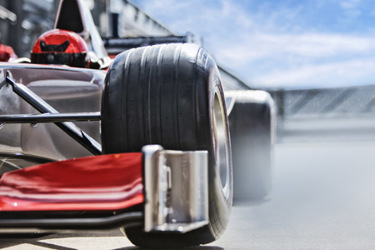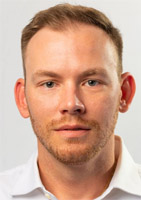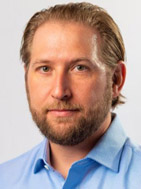From Racecars To Regenerative Medicine

By Matthew Pillar, Editor, Bioprocess Online

Jason Matuszewski earned a degree in mechanical engineering in 2013. He worked for Mazda Motorsports, applying his engineering know-how to build better, safer race cars for professional drivers. But by 2014, Matuszewski was co-founder of a biotech company called BioStem Technologies, which develops regenerative therapeutic products derived from human perinatal tissue for surgical and wound care applications.
I know you have questions about that abrupt transition. Bear with me while I make another introduction.

Now you’re saying, perhaps aloud, “wait, what?”
Hang in there. One more introduction.
Until recently, Chip Van Vurst was a professional racecar driver who spent much of his career driving Mazda racecars. He’s a multi-time national champion, a two-time brain tumor survivor, and the father of Andrew Van Vurst.
Now, let’s start putting these pieces together.
The Genesis Of A Commercial-Stage Regenerative Medicine Company

With firsthand regenerative medicine experience and an insider’s view of the business opportunity it presented, Chip decided to make a move. He’d acquire Caribbean International Holdings, the company that facilitated the medical tourism that led him to cell therapy options in the Dominican and Mexico, and transform it into a U.S.-based regenerative medicine company. As those wheels started turning in 2013, Chip set out to build a management team
His son, Andrew, was the perfect operations guy. Militaristically task-oriented, logistically gifted, and committed to his father’s cause, the younger Van Vurst was all-in on the Chief Operating Officer Role. To lead the front office, Chip needed someone who would quickly understand the mechanics of regenerative medicine and who would work at a fast pace to get the company on its feet. That leads us back to Jason Matuszewski, the Mazda Factory Race Team mechanic who Chip and Andrew had both worked with trackside. Chip trusted Matuszewski with his life, after all. Matuszewski was the guy responsible for ensuring Chip, and his car, finished races in one piece. For his part, Matuszewski didn’t balk at the opportunity. Fascinated by material science, he jumped on board and quickly shifted his mindset from engineering the synthetic materials found in machines to the cellular ones grown in humans.
From Steering Stems To Stem Cells
At this point in the story, you’d be excused to question the legitimacy of what might look like a fly-by-night life sciences company formed up on emotion and loose change. But, in 2018, BioStem acquired assets from ANU Life sciences to accelerate its development of human tissue allografts. Today, it’s already taken multiple perinatal tissue allograft products to market, all of them developed and manufactured in the company’s 6,100 square foot, AATB accredited, cGMP manufacturing facility in Pompano Beach, Fl. The facility features multiple ISO 5 and ISO 7 suites designed for commercial production of HCT/Ps.
BioStem is admittedly a small player in the rapidly growing regenerative therapeutics space, but the pace of the company’s progress can’t be denied and its startup story borders on unbelievable. Want to learn how they’re doing it? You'll have to tune in to episode 116 of the Business of Biotech podcast and hear it from Jason and Andrew themselves.
